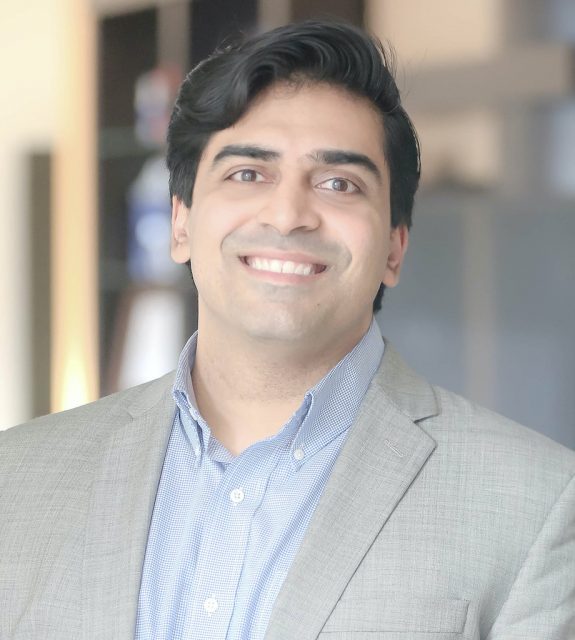Widely considered one of the top fertility experts in the field, Dr. Mark Surrey has been in practice for over 25 years. He is a board-certified reproductive and endoscopic surgeon and serves as clinical professor in the Department of OBGYN at UCLA’s David Geffen School of Medicine. He was elected President of the American Laparoscopy Society & Pacific Coast Reproductive Society and is a Clinical Director of Fellowship Training for UCLA & Cedars Sinai Reproductive Endocrinology. Also a founding member of The Society of Reproductive Surgeons. Dr. Surrey is a yearly recipient of the leading research contributions for ASRM. Furthermore, he is the associate director at the Southern California Reproductive Center, a clinic he co-founded. Haute MD sits down with Dr. Mark Surrey to learn about what the fertility journey is like for LGBTQ+ couples.
 Photo Credit: Shutterstock
Photo Credit: Shutterstock
Haute MD: What are the main reason LGBTQ+ couples seek out surrogacy?
LGBTQ+ couples seek out surrogacy for either medical or social reasons. Medical reasons could be health contraindications to carrying a pregnancy, i.e. pulmonary hypertension or severe diabetes with kidney disease. Patients struggling with this can have an absent or diseased uterus. Social indications could be: Two men wanting a baby and therefore needing a surrogate to carry the embryo.
Haute MD: For LGBTQ+ couples wanting to expand their families, what are the first steps in the (surrogacy) process?
If two men are wanting to start a family, a selection of an egg donor and then selection of a surrogate are needed.
Two women would need to find a sperm donor. We at Southern California Reproductive Center (SCRC) are specialized in connecting our same-sex patients to appropriate donors and surrogates and we assist couples in monitoring the surrogates through their induction process. SCRC can function as a one-stop-shop for LGBTQ+ couples and guide them through an often confusing, emotional and time-consuming process.
Haute MD: What are the important factors that go into choosing a surrogate?
We want a surrogate to have had normal pregnancies and deliveries prior and we normally do not choose first-time mothers for surrogacies to limit unexpected medical challenges as much as possible. A surrogate’s age normally ranges from 31-45, while egg donors should be younger, ideally under 30 years. Donors would ideally also have had a cause or carried a pregnancy prior to their egg donation.
Haute MD: What is the couple's relationship with the surrogate throughout the pregnancy?
This depends completely on the couple. While some like to be very involved with their surrogate’s life during and after delivery, other couples may choose to be less involved in the pregnancy and with their surrogate. Especially international patients might never even meet the surrogate. It all depends on their comfort levels.
Haute MD: What are the main reason LGBTQ+ couples seek out IVF?
In the case of two women, it can be because neither woman can conceive naturally, in which case they would seek out in-vetro fertilization.
Lesbian couples often decide on one woman to be the egg donor and the other to be the carrier of the artificially inseminated embryo to delivery, both having a biological part in their child that way.
For both same-sex couples, male and female, the reason they seek out IVF is to assist with embryo formation prior to surrogacy. With our advanced technology at our Southern California clinics, we can ensure normal embryo formation, giving parents the best possible chance at having a healthy baby.
 Photo Credit: Shutterstock
Photo Credit: Shutterstock
Haute MD: What are the important factors that go into choosing whose genetic materials will be used?
Unless there is a difference in egg quality, it is up to each couple’s personal preference. It is important to understand, though that eggs degrade in quality as a woman matures in age. If the woman is in her 40s, her egg quality will have diminished, which could be a limiting factor. Age, therefore, is the main factor that decides whose genetic material should be used.
Haute MD: What is the process like after the IVF treatment?
After embryos are formed, they are tested in our lab. Patients have the option to utilize our technologically advanced embryo scope, which is an incubator that allows the embryologist to monitor embryo cell division while the embryos are still in the incubator. This technology allows the embryologist to predict further development and the pregnancy potential of each embryo increases the chances of a healthy, successful pregnancy.
In short, genetically and structurally healthy embryos will be selected based upon the results of testing and the healthiest embryo will then be chosen for surrogacy and transferred to the surrogate’s uterus for pregnancy. Some parents decide to choose the embryo based on gender if they have the choice of multiple healthy embryos.
For more information, visit Dr. Mark Surrey's social media:






















